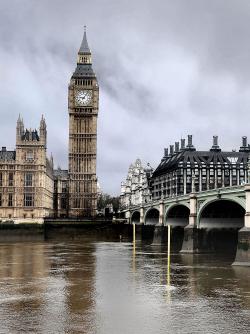Anxiety, Control, and Toilet Paper
What does it say about us when hoarding toilet paper and hand sanitizer really is our best pre-crisis planning?
Like any coronavirus-based illness, COVID-19 attacks the respiratory system. It often announces itself with symptoms similar to those of a common cold, such as a cough. So, how did toilet paper become the hot-ticket item at every grocery store?
The crisis we find ourselves in today did not emerge overnight. By the end of December 2019, Chinese officials had alerted the World Health Organization about dozens of pneumonia-like cases in the city of Wuhan. From that time on, the coronavirus crept in and out of the news until it rapidly pushed its way to the forefront when experts determined that it would not pass quietly. Now, much of the world has ground to a halt, and many have descended upon their local grocery stores to hoard every last roll of toilet paper they can find.
News programs have shown photo after photo of grocery stores, previously stocked to capacity, now filled with empty shelves. The more the run on toilet paper has been discussed, the more intense it has become—in some cases even turning violent.
A similar buying spree on disinfectant wipes, medical gloves, and face masks seems somewhat understandable, as these items, unlike toilet paper, may help prevent the spread of the virus. Producers and vendors of these products in Canada, the United States, and elsewhere have assured customers that their supply chains have not been disrupted. They insist that plenty is available—but it takes time to restock as roll after roll of toilet paper flies off the shelf like never before.
Toilet Paper for Me, Not for Thee
Just why is all of this happening? Steven Taylor, professor of psychiatry at the University of British Columbia, describes the psychology behind the Great Toilet Paper Shortage of 2020 and the bizarre crisis response it has produced:
We pick up cues by looking to other people—it’s how stampedes happen in stadiums—so if you’re in a shopping centre and you see some people around you acting in a frightened way and stocking up, that’s going to have a fear contagion effect that causes other people to start over-purchasing (“The economics of the toilet paper panic—and why more stockpiling is inevitable,” Maclean's, March 10, 2020).
Sadly, when faced with fear and anxiety—of which there is no shortage—many people just copy what others are doing. They feel a sense of unease and unpreparedness, then act out of anxiety and panic when they see others hoarding. Unable to control the spread of the virus despite taking so many precautions, people long for a sense that they can control something.
Consumer psychologist Paul Marsden explains the phenomenon of toilet paper hoarding this way: “It’s about ‘taking back control’ in a world where you feel out of control” (“Here’s why people are panic buying and stockpiling toilet paper to cope with coronavirus fears,” CNBC, March 11, 2020). At the time of this writing, Canadians, like so many others around the world, are waiting to find out exactly how the COVID-19 crisis—the virus and the economic downturn it is bringing—will affect them. They feel their world rapidly spiralling out of control and express their panic in extreme “Me first!” actions—like buying all of a store’s supplies, leaving nothing for other shoppers. In what other ways do people grasp for control when overwhelmed by fear? Gorging on news reports is another common coping mechanism, as is overanalyzing the details, which turns into fearful speculation without knowing all the facts.
We should certainly do what we can to provide for ourselves and our families in times of hardship. But we need perspective.
Jesus Christ described a man who, were he around today, would have a pantry to envy and emergency provisions aplenty.
Then He spoke a parable to them, saying: “The ground of a certain rich man yielded plentifully. And he thought within himself, saying, ‘What shall I do, since I have no room to store my crops?’ So he said, ‘I will do this: I will pull down my barns and build greater, and there I will store all my crops and my goods. And I will say to my soul, “Soul, you have many goods laid up for many years; take your ease; eat, drink, and be merry”’” (Luke 12:16–19).
This man seems prepared for whatever may come his way. He has put in his work. He has stocked up his provisions. But what does Christ tell us of this man? “But God said to him, ‘Fool! This night your soul will be required of you; then whose will those things be which you have provided?’ So is he who lays up treasure for himself, and is not rich toward God” (vv. 20–21).
In a real sense, the man had the “Me first!” mentality of a hoarder. As long as he had enough provisions, he didn’t have a care in the world. He did not face the fact that there was still much beyond his control, where his riches would be useless. He neglected the important factor of faith. Yes, we should keep our pantry stocked, but the most important supply we should have is trust in our Savior.
Dr. Taylor reminds us that fear is contagious. These days, the evidence of that fills our news feeds. But the antidote to fear is not hoarding—it is hope.
The psalmist was moved to tell us that “in His word I do hope” (Psalm 130:5). That “word”—the inspired text of the Bible—is full of passages that provide great hope for this and any other time. Hope can be found in passages describing God as our ultimate Protector (Psalm 91) and as our Healer (Exodus 15:26). Hope can also be found in God’s promise to intervene for mankind at a future time, when He will send His son, Jesus Christ, to prevent us from completely destroying ourselves (Matthew 24:22). Read this issue’s article by Richard F. Ames, “Claim God’s Promises!,” for a fuller perspective on the hope God offers us when fear threatens to take hold.
Advice for the Ages
Paul’s admonition to Christians at Philippi is especially fitting in times like ours:
Be anxious for nothing, but in everything by prayer and supplication, with thanksgiving, let your requests be made known to God; and the peace of God, which surpasses all understanding, will guard your hearts and minds through Christ Jesus (Philippians 4:6–7).
Anxiety, unease, and a sense of losing control have led many to hoard toilet paper as preparation for a respiratory disease. At a time that calls for rational thought, level-headedness, and concern for our neighbors, many around us are falling victim to panic and fear. It is not that we should fail to take wise precautions with the excuse that “God will protect us.” Rather, the word of God teaches us to heed wise directions to protect ourselves in times of crisis (Proverbs 22:3; Ezekiel 33:2–5).
Indeed, when disaster strikes, we need to set our focus on controlling those aspects of the situation where we can have the greatest impact. Many facets of the current COVID-19 crisis are far beyond the control of anyone reading this. But there are no aspects beyond the control of our Creator. In fact, the greatest means of control available to us lies in the instruction of James 4:8: “Draw near to God and He will draw near to you.”






